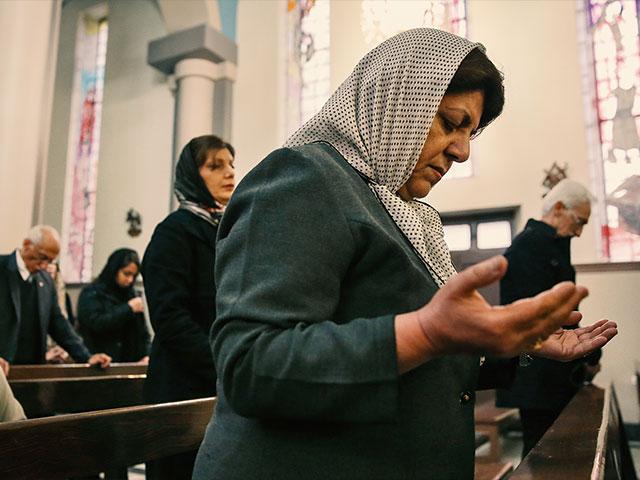
Ceremonies in Spiritual Practices
Rituals and ceremonies have been integral to human spiritual practices throughout history. They serve as powerful tools for deepening our connection to the divine, honoring significant life events, and cultivating a sense of meaning and purpose. Whether performed individually or collectively, rituals and ceremonies provide a framework for expressing our spirituality and engaging with the sacred. In this blog post, we will explore the role of rituals and ceremonies in spiritual practices and their impact on our spiritual well-being.

- Establishing Sacred Space: Rituals and ceremonies often involve the creation of sacred space. This can be a physical location, such as a temple, altar, or designated area in nature, or it can be a mental and emotional space created through intention and focus. By consciously setting aside a space for spiritual practices, we create a container that holds our intentions, prayers, and offerings. This sacred space serves as a sanctuary where we can connect with the divine, cultivate inner stillness, and experience a sense of reverence.
- Deepening Connection and Communion: Rituals and ceremonies are vehicles for establishing a deeper connection and communion with the divine, as well as with ourselves and others. Through symbolic actions, prayers, chants, or meditations, we engage our senses and enter into a state of heightened awareness. These practices enable us to transcend the ordinary and tap into the transcendent, accessing a deeper level of spiritual insight and understanding. Rituals and ceremonies provide a means to express our devotion, gratitude, and reverence, and to seek guidance, healing, or transformation.
- Marking Transitions and Milestones: Rituals and ceremonies play a crucial role in marking significant life transitions and milestones. From birth and initiation to marriage and death, these rites of passage provide a framework for acknowledging and navigating the different stages of life. They help us find meaning and purpose in these transitions, offering a sense of continuity and connection to something greater than ourselves. By participating in rituals and ceremonies, we honor these important moments, acknowledge the impact they have on our lives, and seek guidance and blessings for the journey ahead.
- Cultivating Presence and Mindfulness: Rituals and ceremonies are inherently mindful practices. They require our presence and attention, grounding us in the present moment and fostering a deep sense of mindfulness. By engaging in deliberate and intentional actions, such as lighting a candle, offering incense, or reciting prayers, we bring our awareness fully to the present and cultivate a state of mindfulness. This heightened state of consciousness allows us to experience a deeper connection with the sacred and a greater sense of inner peace and clarity.
- Enhancing Spiritual Embodiment: Rituals and ceremonies can also facilitate a deeper sense of spiritual embodiment. Through physical gestures, postures, or movements, we engage our bodies in the expression of our spirituality. This embodiment allows us to connect not only on a cognitive and emotional level but also on a physical level. It brings our spirituality into the realm of the tangible, grounding it in our lived experience. By engaging our bodies in these practices, we honor the sacredness of our physical existence and recognize that our bodies are vessels for spiritual expression.
- Creating Community and Shared Experience: Rituals and ceremonies are often communal activities, bringing people together in a shared experience of spirituality. They foster a sense of belonging and unity as individuals gather to participate in a common practice or celebration. These collective experiences can be powerful sources of support, encouragement, and inspiration. They remind us that we are not alone in our spiritual journey and that we are part of a larger community of believers. By engaging in rituals and ceremonies together, we build connections, strengthen relationships, and create a sense of shared purpose.
- Facilitating Inner Transformation: Rituals and ceremonies have the potential to facilitate inner transformation and personal growth. They provide a structured framework for intentional reflection, self-examination, and spiritual development. As we engage in these practices, we create space for introspection, healing, and the cultivation of virtues and qualities that align with our spiritual values. Whether through meditation, prayer, or symbolic acts, rituals, and ceremonies invite us to go beyond surface-level engagement and delve into the depths of our souls, fostering personal transformation and spiritual evolution.
- Connecting with Tradition and Heritage: Rituals and ceremonies often draw upon the rich traditions and heritage of a particular spiritual or religious path. They serve as a link to the wisdom, practices, and rituals passed down through generations. By engaging in these rituals, we connect with the collective wisdom of our ancestors and honor the heritage that has shaped our spiritual beliefs and practices. Whether it’s lighting candles, reciting prayers, or performing specific actions, these rituals provide a sense of continuity and connection to the broader historical and cultural context of our faith.
- Inviting Sacredness into Everyday Life: While rituals and ceremonies are often associated with specific occasions or designated times, they also have the power to infuse our everyday lives with a sense of sacredness. By incorporating smaller rituals into our daily routines, we can create moments of pause, reflection, and connection with the divine in the midst of our busy lives. Whether it’s a morning prayer, a gratitude practice, or a mindful mealtime, these rituals help us center ourselves, attune to the present moment, and infuse our daily activities with intention and purpose. They remind us that spirituality is not confined to special occasions but can permeate every aspect of our lives, nurturing a deeper sense of connection, mindfulness, and reverence.
In summary, rituals and ceremonies play a vital role in spiritual practices by establishing sacred space, deepening connection and communion, marking transitions and milestones, cultivating presence and mindfulness, enhancing spiritual embodiment, creating community and shared experience, and facilitating inner transformation when you use this link. These practices are rich with symbolism, meaning, and intention, inviting us to engage our minds, bodies, and spirits in the pursuit of spiritual growth and connection. As we incorporate rituals and ceremonies into our spiritual lives, may they guide us on a profound journey of self-discovery, connection, and transformation, leading us to a deeper understanding of ourselves and our place in the world.
